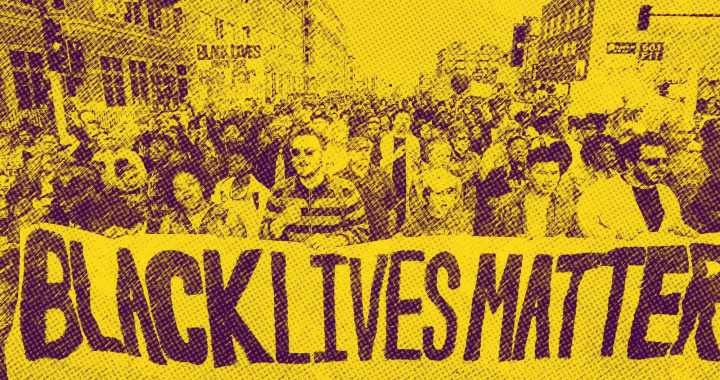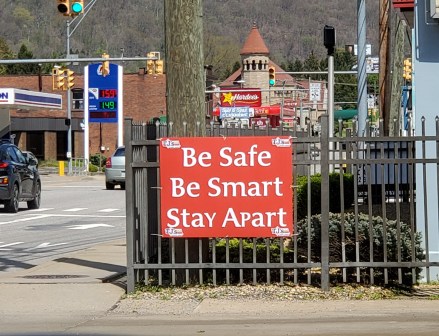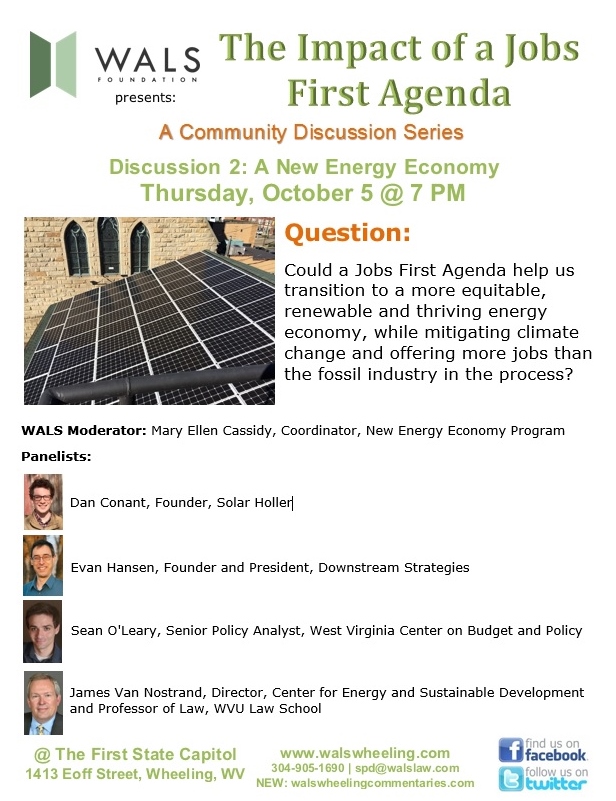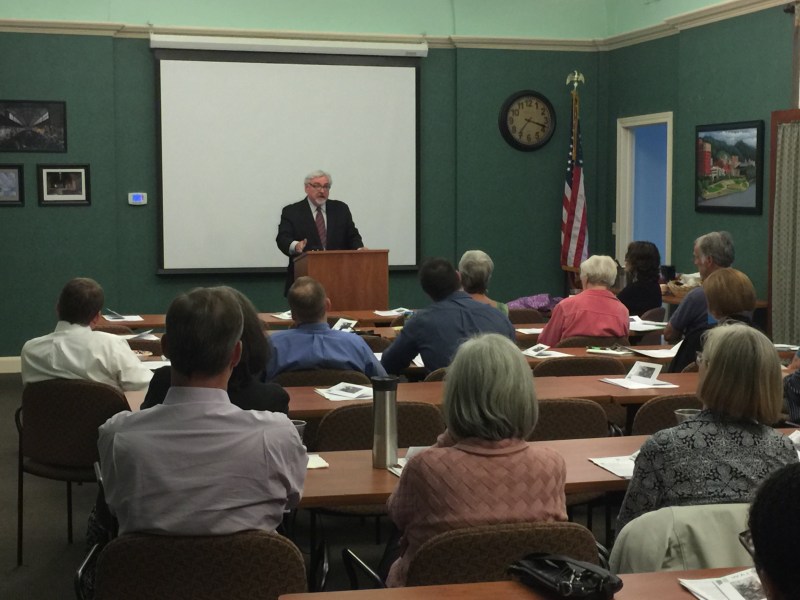By Patrick Cassidy, Esq.
 These Reflections started as “Reflections on the Law” during the Covid-19 pandemic. They now conclude amidst global protests over George Floyd’s murder at the hands of unscrupulous members of the Minneapolis Police Force. They end despite the fact that the vast majority of Americans realize that the rule of law, and “accountability” for violations of it, are at risk like no time before. At the same time, it has become clear to most Americans that our own minority communities have yet to fully benefit from the “rule of law” protections proclaimed by our “Founders” as fundamental to the continuing existence of our democratic Republic.
These Reflections started as “Reflections on the Law” during the Covid-19 pandemic. They now conclude amidst global protests over George Floyd’s murder at the hands of unscrupulous members of the Minneapolis Police Force. They end despite the fact that the vast majority of Americans realize that the rule of law, and “accountability” for violations of it, are at risk like no time before. At the same time, it has become clear to most Americans that our own minority communities have yet to fully benefit from the “rule of law” protections proclaimed by our “Founders” as fundamental to the continuing existence of our democratic Republic.
We see the “Executive Branch” of this now wobbling Republic refusing to mitigate and manage the pandemic for his own personal political interests. We see that same Executive Branch “leadership” failing to support and protect “essential workers,” who have acted with selflessness and integrity during the pandemic. Instead, he promises his business friends that he will get them “immunity” from lawsuits from any employees lost to unsafe, non-distancing practices of their employers (in the name, no doubt, of further “tort reform”). You will recall that one of the few “safety” laws available to employees pre-pandemic, was our understanding of the law that employers had (at least) to provide their employees a safe place to work. (See Reflection No. 1).
As peaceful protestors turn out in the thousands and millions in this nation and around the globe because Black Lives Matter every bit as much as those of our white citizens, we see the President threatening the complete collapse of our constitutional “rule of law,” by threatening to call out the U.S. military to “dominate” the streets (See a “pre-reflection prediction” in “Killing the Lawyers,” Weelunk, 2016).
What we need, perhaps most of all, when it comes to reflecting on the future of the “rule of law” in this country, is to find a way to make public officials and public employees, at every level of government, “accountable” to the law.
Jobs First & The Accountability Amendment
The Jobs First Agenda suggests the implementation of a renewed Civilian Conservation Corps-type government initiative to re-hire (at a living wage) all of our currently unemployed and suffering citizens, whether victims of loss of jobs due to the pandemic, or unequal opportunities, or unjust hiring practices, to work on infrastructure (and national) rebuilding in the broadest sense, until federally-incentivized jobs in the private sector can bring back full private employment in our country (without socialism). But, we must also consider perhaps the most important and last amendment to be proposed as part of the Jobs First Agenda, which we call the “Accountability Amendment.”
Without it, nothing will even come of our proposals to guarantee a living-wage job as a right of all citizens, universal health care as a right of all citizens, and free education through college or vocational school as a right of all citizens. Without it, nothing can change in our country, in our Republic, for the “common good.”
None of the proposed constitutional amendments under the Jobs First Agenda, will ever work unless the people administering any such Agenda have the integrity to make it work; and unless we have a way to challenge self-seeking and corruption of our public officials and employees on the federal, state, and local levels.
Why should elective office be so widely considered now (but thankfully not by all of our politicians) as just a vehicle for the promotion of one’s private business interests? Why have so many positions of “public trust” been squandered by unscrupulous people on opportunities for self-promotion not available to regular citizens without privileged positions? Whether those unscrupulous “public” agents were able to amass that wealth or private benefit without “technically” violating laws against outright bribery, was not the breach of any trust by self-dealing or private interest by public officials or employees not the very conception of “corruption” held by the Founders of this Republic? (See “Wanted: A Self-Drainng Swamp.” See also Corruption in America: From Benjamin Franklin’s Snuff Box to Citizens United by Zephyr Teachout)
Ending Sovereign Immunity
People we hear criticize the government, or its bureaucracies on every level, are not reflecting a natural hate of the idea of government and what it is supposed to be doing. They are not generally anarchists. But what most troubles them is that government often fails to do the job it is supposed to be doing for them at every level because of its “lack of accountability” — most often by virtue of outdated notions of “Sovereign Immunity,” the idea that one cannot sue the state, as proclaimed by King George III during the American Revolution. Somehow we failed to throw out that quaint provision of the “King’s Law,” an unconscionable “oversight” by our Founders along the same lines of not abolishing slavery the first time they penned that “all men are created equal.” What we need now more than ever is accountability from all public officials, and all public employees. We have had endless discussions among our fellow citizens about it. We have heard it from our educators, our health care workers, our journalists, our children. “We need Accountability.”
Today, we are hearing it demanded from thousands of peaceful protestors around the country, and around the world.

Restoring the Public Trust
We know, but hesitate to confront the reality, that no Republic can survive if what’s left of its justice system is eroded by corruption–whether by outright bribe, private interest, or greed.
So here is the last of the Constitutional Amendments proposed as part of the Jobs First Agenda, which we refer to as the “Accountability Amendment,” and is necessary to hold public officials and employees from every level of government, as well as private persons or corporations engaging in “public service, accountable. Like the other proposed Amendments of the Jobs First Agenda, it too is adapted from the Universal Declaration of Human Rights of 1948.
The proposed language is a follows:
Public Accountability Amendment
Everyone is entitled to a social order in which the rights and freedoms set forth in this Constitution can be fully realized; and in the exercise of each and every citizen’s rights and freedoms, everyone shall be subject only to such limitations as are determined by law solely for the purpose of securing due recognition and respect for the rights and freedoms of others and of meeting the just requirements of morality, public order, and the general welfare in a democratic society. (Adapted from Articles 28 and 29 of the Universal Declaration of Human Rights of 1948).
Section 1. Such a limitation required solely for the purpose of securing due recognition and respect for the rights and freedoms of others includes the necessity of declaring all Public Employees, at the federal, state, and municipal level, including, but not limited to, all elected public officials, non-elected public employees, public police officers, and any private persons, corporations, or other entities that provide essential public services, shall be considered holders of positions of Public Trust; and shall have fiduciary duties of good faith and trust to all citizens in their respective jurisdictions, and shall be held to a high standard of honesty and full disclosure in regard to all citizens in their respective jurisdictions, and shall not obtain a personal benefit at the expense of any citizens in their respective jurisdictions, and shall be subject to personal liability at common law for violations of the public trust as herein defined. Such actions shall be brought under the common law, and for violations of this Amendment by Federal public officials, in any federal court of any state, on behalf of one or more citizens of The United States of America, and such actions against state or local public officials shall be brought in the courts of general jurisdiction of the appropriate state where the violation of Public Trust shall have occurred. Any actions at common law under this Amendment shall not be subject to a defense of “lack” of standing, so long as brought by any citizen of the United States or State as specified herein; nor shall the defense of “sovereign Immunity,” “absolute immunity,” or “qualified Immunity” be a defense to said action, or the creation of a “common-fund” for damages for said breach to the benefit of the citizens of the United States, or citizens of the appropriate state or local jurisdictions as defined herein. In all such actions, Trial by Jury shall be preserved, in accordance with the Seventh Amendment to the United States Constitution.
Please note, when you read section 2, that the “Accountability Amendment” also requires compensation for destruction to the environment and contribution to climate change, and serves as the mechanism to make the Jobs First Agenda a vehicle for a “non-socialistic” New Green Deal. It seeks reasonable and what we now realize is “necessary” accountability for actions being taken by any person or corporation to destroy our climate and environment, which would be expected to make the transition from fossil fuels to renewable energy nearly immediate, and based on economic feasibility, which the consensus of scientific evidence requires, if we are to save our way of life, and our climate, for ourselves and our posterity.
Section 2. Such a limitation required solely for the purpose of securing due recognition and respect for the rights and freedoms of others includes the necessity of declaring that no person, corporation, or other entity shall contribute to damage to the environment, including, but not limited to, unreasonable contribution to “global warming,” or in the alternative, shall pay an amount equal to the unavoidable damage they cause to ameliorate the effects of any such contribution; nor shall any person, corporation, or other entity otherwise cause harm or destruction to the “public commons” for private gain; including, but not limited to, the right of every citizen to affordable clean water; clean air, and an environment healthy and safe to our citizens and their posterity, without compensation equal to the harm or destruction caused. One or more citizens shall have standing in any appropriate state or federal court to bring actions at common law in their respective jurisdictions to remedy any damage to the environment, the public commons, or for unreasonable contribution to global warming, in the nature of creating a “common fund” for the benefit of all citizens, or citizens in their own jurisdiction, if such damage is confined thereto. In all such actions, Trial by Jury shall be preserved, in accordance with the Seventh Amendment to the United States Constitution.
Section 3. “Non-Preemption” Clause. Nothing herein shall be deemed to limit the right of any individuals or other person or citizen personally harmed by any breach of Public Trust, or personal harm to themselves or their property, under any other laws heretofore existing, or that may be enacted in the future; it being the purpose of this Amendment to afford “a more perfect Union” by requiring accountability to all citizens for harmful acts to our citizens and their posterity, without interfering with any existing laws with a more limited purpose.
A Parting Suggestion
 This final Reflection on the Law during the time of Covid-19, which has come to include this Reflection on the State of the Rule of Law in general, comes with a parting suggestion. We must set the Agenda in motion. We must ask our current Representatives and Senators to introduce these amendments and shift the “priorities” of our country toward serving working Americans of all nationalities, races, classes, and creeds, to adopting a universal declaration of human rights, and a framework for challenging state actors to be accountable for the change. If they refuse, we need to vote them out of office, and elect someone who will.
This final Reflection on the Law during the time of Covid-19, which has come to include this Reflection on the State of the Rule of Law in general, comes with a parting suggestion. We must set the Agenda in motion. We must ask our current Representatives and Senators to introduce these amendments and shift the “priorities” of our country toward serving working Americans of all nationalities, races, classes, and creeds, to adopting a universal declaration of human rights, and a framework for challenging state actors to be accountable for the change. If they refuse, we need to vote them out of office, and elect someone who will.
“Show me what Democracy looks like?”
“This is what Democracy looks like.”











 Once Upon a Time in America, fairness mattered. Corporations and their employees worked toward common goals, usually in a community setting. But somewhere along the way, everything changed. Why?
Once Upon a Time in America, fairness mattered. Corporations and their employees worked toward common goals, usually in a community setting. But somewhere along the way, everything changed. Why?